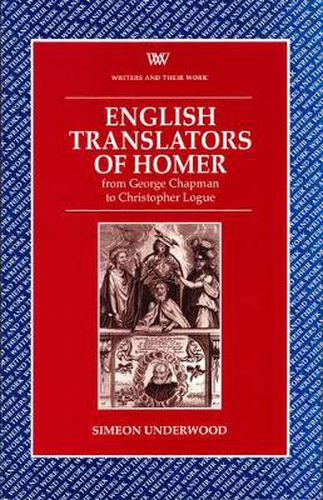Readings Newsletter
Become a Readings Member to make your shopping experience even easier.
Sign in or sign up for free!
You’re not far away from qualifying for FREE standard shipping within Australia
You’ve qualified for FREE standard shipping within Australia
The cart is loading…






Since Chapman made his famous translation at the end of the Elizabethan period, Homer and the translation of his works have had a central place in English literature. This book traces the great tradition of English translations of Homer, focusing in particular on the contributions of Chapman, Pope, E.V. Rieu and Christopher Logue - names which in themselves show the wide range of approaches which have been taken to Homer’s original. Translation is often seen as an expression of its age, and the author examines each period’s differing attitudes to Homer and to the translator’s task. Finally, in the post-War period as the study of translation itself has moved to the forefront of literary and cultural studies, this book provides a brief introduction to the main lines of contemporary thinking in this area, and illustrates them by examples from the tradition of English Homers.
$9.00 standard shipping within Australia
FREE standard shipping within Australia for orders over $100.00
Express & International shipping calculated at checkout
Since Chapman made his famous translation at the end of the Elizabethan period, Homer and the translation of his works have had a central place in English literature. This book traces the great tradition of English translations of Homer, focusing in particular on the contributions of Chapman, Pope, E.V. Rieu and Christopher Logue - names which in themselves show the wide range of approaches which have been taken to Homer’s original. Translation is often seen as an expression of its age, and the author examines each period’s differing attitudes to Homer and to the translator’s task. Finally, in the post-War period as the study of translation itself has moved to the forefront of literary and cultural studies, this book provides a brief introduction to the main lines of contemporary thinking in this area, and illustrates them by examples from the tradition of English Homers.